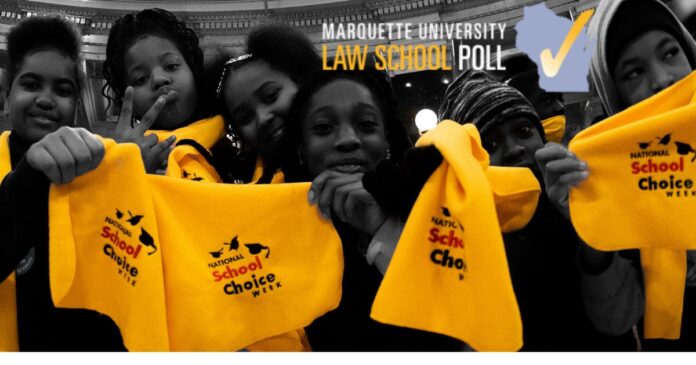The legal fight over school choice in Wisconsin could be growing.
The Wisconsin Institute for Law and Liberty asked to join the Supreme Court case that would end the state’s school choice programs.
“On behalf of our clients and about 65,000 students who benefit from Wisconsin’s choice programs, WILL stands ready to defend the rule of law and the educational freedoms afforded to students and families alike,” WILL President and General Counsel Rick Esenberg said in a statement.
Progressive activist and frequent candidate Kirk Bangstad filed a lawsuit last month that says Wisconsin’s four taxpayer-funded school voucher programs are unconstitutional.
Bangstad is asking the liberal-majority Wisconsin Supreme Court to strike down those programs and send the money that choice students receive back to the state’s public schools.
WILL’s argument is the lawsuit is too broad, wrong and asks the court to end “settled law.”
“[Bangstad’s] arguments are factually incorrect and that granting their arguments would lead to vast unintended consequences. The factual inaccuracies, incorrect conclusions, and breathtakingly broad relief requested by the petitioners makes bringing these issues directly to the Wisconsin Supreme Court not only impractical, but completely inappropriate,” WILL wrote.
WILL, in their motion to intervene in the case, argues that striking down school choice in the state will hurt thousands of minority students.
“Over 85% of all choice-program students within the schools WILL is representing are non-white, based on state data. Many of the students are from low- or middle-income families,” WILL said Monday.
Esenberg said WILL is representing 22 families who have children enrolled in one of the state’s school choice programs or a voucher school.
If the court denies WILL’s attempt to join the case, they are asking that the court allow the families to continue forward.
Bangstad’s lawsuit says school choice discriminates against poor families because it strips money from traditional public schools.
Wisconsin’s State Superintendent of Schools agrees.
“Wisconsin needs to fulfill its responsibility to effectively, equitably, and robustly fund our public education system. I welcome any opportunity to move Wisconsin in that direction,” Superintendent Jill Underly said last month. “Public education is a constitutional right. It says it right there in Article X, Section 3 of the Wisconsin Constitution. And as a right guaranteed to our children, and as an opportunity for our state to put our money where our priorities should be.”






![Protecting Portland: No Good Deed Goes Unpunished [REVIEW]](https://www.wisconsinrightnow.com/wp-content/uploads/2025/07/portland-356x220.jpg)
























